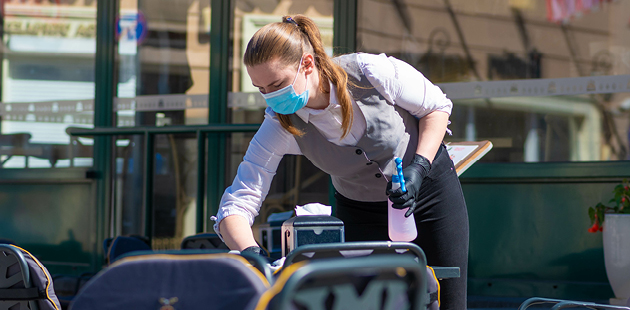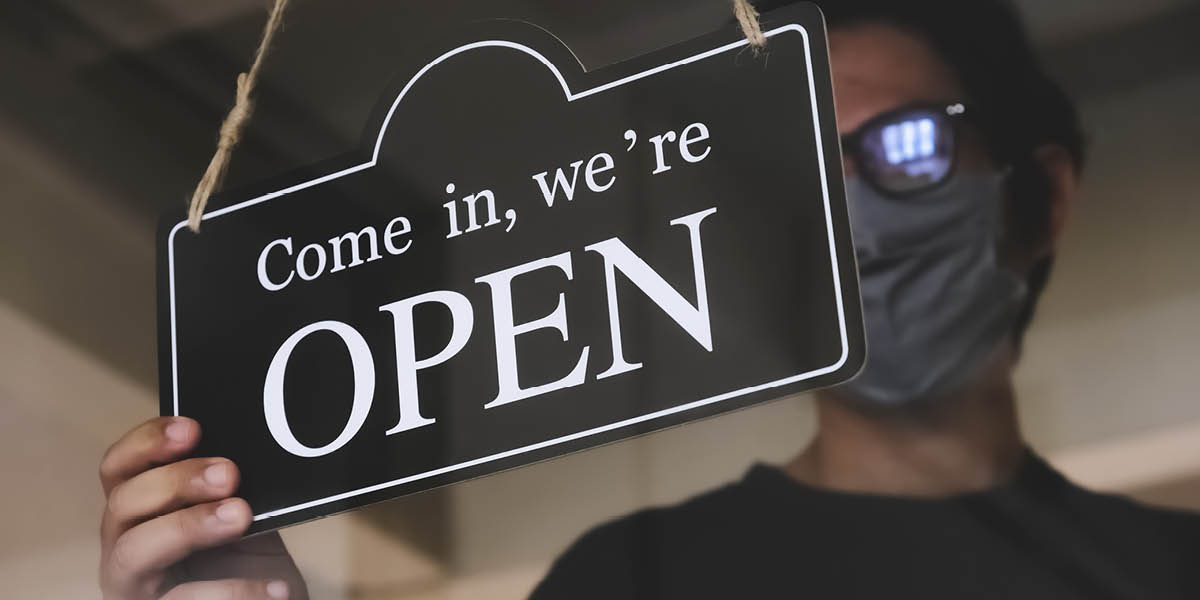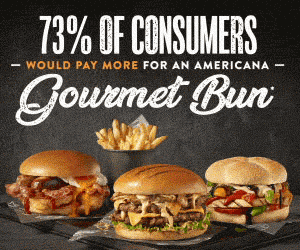Restaurants can trade outdoors from 12 April

The prime minister Boris Johnson has confirmed the government's 'cautious but irreversible' roadmap to recovery for England following the country's third national lockdown.
Details on when restaurants can trade from outdoor dining areas, and then indoors, have been included in the roadmap, provided the following conditions are met at each phase of lockdown easing:
- The coronavirus vaccine programme continues to go to plan
- Evidence shows vaccines are sufficiently reducing the number of people dying with the virus or needing hospital treatment
- Infection rates do not risk a surge in hospital admissions
- New variants of the virus do not fundamentally change the risk of lifting restrictions
Plans (which cover the whole of England, rather than its previous tiered arrangement) have been set out in a four-stage proposal that begins on 8 March 2021, when schools will reopen to all pupils and people will be allowed to meet one person from outside their own household for recreational pursuits in addition to exercise; the public will no longer be legally required to stay at home.
It may then be decided that from 29 March, the rule of six/two households can apply to outdoor spaces and private gardens.
The second stage of the roadmap includes the confirmation that restaurants will be able to trade from outdoor areas, with no curfew and no rule on essential food sales to accompany alcohol, from 12 April if the four conditions above are met.
In the third stage of the roadmap, which will come into force no earlier than 17 May, restaurants, hotels and B&Bs can then reopen indoors in a Covid-secure way (with the 'rule of six' applied), subject to capacity limits depending on the size of the venue.
It is hoped that the fourth and final stage of the roadmap will be brought in from 21 June, which will see an end to all legal limits on social contact.
The country will be given a week's notice before each of the stages comes into effect.
Johnson reiterated that the chancellor Rishi Sunak will outline the government's approach to financial support in the upcoming Budget on 3 March.

Industry reaction: businesses continue to pay the price
There have been mixed reactions to the government's plan, especially given that only 40% of hospitality businesses have access to outside seating areas, according to UK Hospitality (UKH).
“The sector is obviously devastated that its reopening will be so far away," says Kate Nicholls, UKH's chief executive. "From the start of November, the sector will have been closed for nearly 200 days, with just a couple of weeks of heavily restricted trading in December. A major package of financial support is imperative if hospitality is to survive.
“The prime minister says that the reopening schedule is driven by data, yet all the data points to hospitality being relatively safe and linked to only a tiny number of cases. Vaccinations and the fall in infection rates has de-risked our reopening even further. Over the past year, the government has repeatedly miscalculated the risks posed by hospitality.
“This delay in reopening will make the job of survival all the more difficult for businesses only just clinging onto existence. It is much more than just an inconvenience for many employers in our sector, it is another delay that they cannot afford and, for too many, will not be able to survive."
The organisation has called on the government to provide a 'generous' compensation package, including extensions of the VAT cut, business rates holiday, the rent moratorium and furlough scheme.
Operators have voiced their concerns over the roadmap, with Marcos Fernandez of Ibérica Restaurants and Arros QD saying that the forced closures of businesses that was not accompanied by the forced closure to landlords and banks is "still a problem caused by government actions to those businesses, and needs an answer by the same government".
"The whole country needed to make an effort in this fight," Fernandez adds, "but it is really unbalanced how this government is sharing the burden, with the middle class paying and their sponsors, banks and landlords just gaining in the process."
Mohammad Paknejad, co-founder of Nutshell Covent Garden, notes that businesses continue to pay the price for the "never ending chain of mistakes" made by government.
"The government refuses to accept the effects of the spread of the virus amongst school children at schools even though they themselves publish studies have been showing the highest infection rates are between school children," Paknejad states. "It doesn’t really come across as if the government knows what they are doing or if they have ever had a plan.
"Regarding the speech in the parliament on 22 February, it should have been followed by another speech or at least a press release from the Treasury informing businesses on how they will be supported during the rest of this extremely long period of mandated closures.
"Now, the only thing that businesses know is that they won’t be having any revenue anytime soon. Thus, a lot of businesses might resort to laying off more staff or closing their premises until the government scrambles for another pathetic attempt at supporting economy while costing tax payers billions with Brexit and awarding contracts to their friends."













